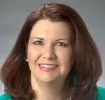In a recent case, Hunt v. 21st Mortg. Corp., 2013 U.S. Dist. LEXIS 132574, (N.D. Ala.,. Sept. 17, 2013) the court concluded that based on the facts of that particular case, it was limiting the definition of "automatic telephone dialing system" to mean a system that had the present capacity, at the time the calls were being made, to store or produce and call numbers from a number generator.
The court's holding, however, appears to be sufficiently narrow so as not to have too drastic of an effect on other TCPA litigation. The court was careful to explain that it agreed with the vast majority of courts that have held that generally telephone systems that are fully equipped and ready to automatically dial numbers at a moment's notice, even if not used, meet the "automatic telephone dialing system" definition. The court believed that extending that definition to phone systems that could be upgraded to allow for automatic telephone dialing was too broad, because if taken literally it would mean that any telephone would qualify, including individual cell phones. Thus, the court limited the definition to include only phones with the "present capacity" to store or produce and call numbers from a number generator.
The court's decision also appears to be reflective of the fact that courts understand that there has to be some reasonable limit to the broad scope of the TCPA. Although it is encouraging that the court was willing to set some limit, it is doubtful that we will see a large number of courts agreeing to limit the definition of automatic dialing based on the Hunt case. As the court noted, the fact that the TCPA is a consumer protection statute—and therefore must be construed broadly—will limit the judiciary's ability to narrow the scope of the TCPA.
In a nutshell, the court in Hunt was attempting to adhere to the spirit of the TCPA without stretching its bounds to the point of absurdity. As much as we would hope otherwise, it is likely an isolated case that will have little impact. Thus, it is important for companies that may call consumers to understand how their telephone systems work, and how the TCPA restricts their use of those systems.
The content of this article is intended to provide a general guide to the subject matter. Specialist advice should be sought about your specific circumstances.

